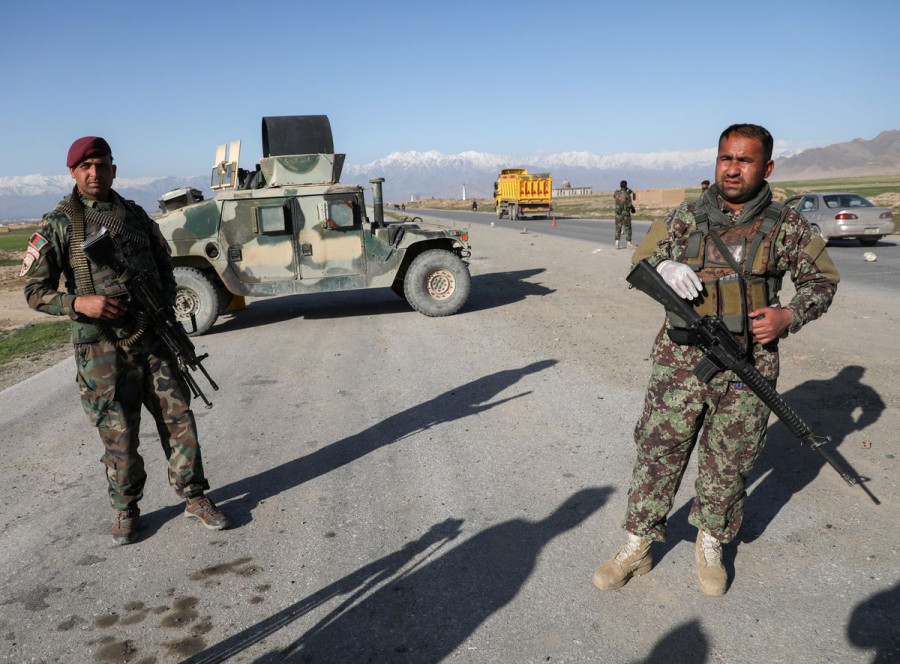Editorial
Nepali ‘Kabuliwalas’
Repatriating Nepalis in Afghanistan needs to be a high priority for Deuba.
Afghanistan—it’s one of the deadliest places to be. Given recent developments, insecurity is only getting worse as the Taliban launch major offensives, claiming half of all district centres and border crossings. Recent weeks have been marred by fighting in its provinces following the United States announcement to withdraw its troops completely. According to Reuters, almost all US troops, except those protecting the embassy in Kabul and the airport, have left the country with US President Joe Biden setting a formal end to the American military mission for August 31. Foreign policy experts and Afghan observers say the rapidly deteriorating situation as the Taliban insurgents continue to make territorial gains and put pressure on the capital, Kabul, could trigger a geopolitical flux and pose security risks in the region. And some scenarios are already playing out.
On Thursday, Afghanistan’s northern neighbour Tajikistan held its largest-ever military exercise mobilising its entire army. In his speech broadcast by state television, President Emomali Rakhmon said, “Due to the unstable situation in the region, I once again remind the people of Tajikistan that we must be ready to protect the peace and stability that have been achieved at a high price.” The Central Asian nation also sent 20,000 men from the military reserve to reinforce its border with Afghanistan. Closer to home, there have been some significant incidents in South Asia as fears of the Taliban momentum escalate with the withdrawal of US and North Atlantic Treaty Organisation troops, further validating the insecurity concerns.
Last week, a bus carrying Chinese hydropower developers was blown up at Khyber Pakhtunkhwa province in Pakistan, killing nine Chinese engineers and three Pakistani soldiers. In Islamabad, the daughter of the Afghan ambassador to Pakistan was kidnapped and released several hours later, which led to the Afghan Foreign Ministry recalling the ambassador and other senior diplomats. The two countries have always traded barbs accusing each other of violence and harbouring enemies, and the kidnapping incident has further strained relations.
In Afghanistan, the Taliban has reportedly captured 200 of the 419 district centres and major border crossings while Afghan state forces and pro-government militias have regained control in some districts and border points. As the Taliban intensify their attacks and capture strategic districts, ceasefire negotiations at a peace meeting in Doha have failed. There is no doubt that a Taliban takeover will have repercussions for global politics and hamper regional peace and security by emboldening militant groups.
With Afghanistan headed towards a power vacuum, Nepal must be wary and act before things fall further apart. It is estimated that some 50,000 Nepalis have worked in Afghanistan since the war began. The current number is estimated to be around 100. However, the actual number could be higher, given the recent history of Nepalis venturing into war zones like Iraq and Afghanistan and migration through unofficial channels, despite the government ban following the 2016 suicide attack on a bus in Kabul that killed 14 Nepali security guards.
As tensions rise in Kabul, repatriating Nepalis needs to be a high priority for the Deuba administration, which is still trying to figure out the coalition math that has delayed major appointments in the Cabinet, including the Foreign Ministry. Both India and China, Nepal’s immediate neighbours, have high stakes in Afghanistan. While Kathmandu needs to closely observe how Delhi, Beijing and Islamabad engage with Kabul, the safety of Nepalis in Afghanistan cannot be compromised.




 13.12°C Kathmandu
13.12°C Kathmandu














